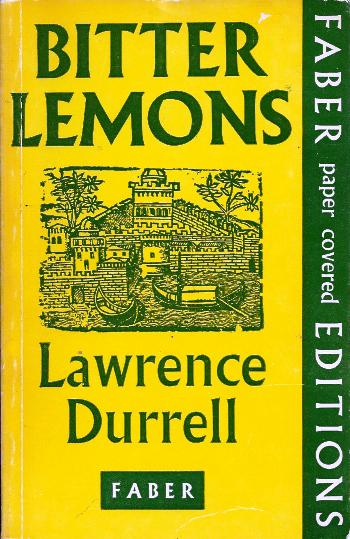 I Why The Classics
Bei Dao Zbigniew Herbert Zagajewski R. Carver Milosz Bolano Poems Charles Simic Brodsky Borges Cavafy_Ithaca Octavio Paz Thu 2013 NXH's Poems of the Night Lửa & Khoa Hữu & Celan TNH Poems Haiku_Buson Xmas 26 Dec 1999 Mark Strand Mahmoud Darwish W.S. Merwin TTT_9_Years Trang thơ Dã Viên The Lunatic by Simic Map by Szymborska Serbian Poetry ed by Simic Baczinski by AZ A Defense of Ardor by AZ Thơ Joseph Huỳnh Văn Emily Dickinson 1 |
Album | Thơ | Tưởng Niệm | Nội cỏ
của
thiên đường | Passage Eden | Sáng
tác | Sách mới xuất bản | Chuyện văn Dịch thuật | Dịch ngắn | Đọc sách | Độc giả sáng tác | Giới thiệu | Góc Sài gòn | Góc Hà nội | Góc Thảo Trường Lý thuyết phê bình | Tác giả Việt | Tác giả ngoại | Tác giả & Tác phẩm | Text Scan | Tin văn vắn | Thời sự | Thư tín | Phỏng vấn | Phỏng vấn dởm | Phỏng vấn ngắn Giai thoại | Potin | Linh tinh | Thống kê | Viết ngắn | Tiểu thuyết | Lướt Tin Văn Cũ | Kỷ niệm | Thời Sự Hình | Gọi Người Đã Chết Ghi chú trong ngày | Thơ Mỗi Ngày | Chân Dung | Jennifer Video Nhật Ký Tin Văn/ Viết Thơ
Mỗi Ngày
Thơ Mỗi Ngày Tribute
to NCT: Vietnam's Solzhenitsyn
Thấm thoát, hôm nay 2/10 là giỗ ba năm Thi sĩ Nguyễn Chí Thiện. Trích hai câu thơ của ông: "Để thắng được kẻ thù / Tôi không thể hèn ngu..." Tưởng
nhớ Nguyễn Chí Thiện nhân giỗ 100 ngày * Một số hình ảnh tài liệu về
thi sĩ Nguyễn Chí Thiện Nguyễn Chí Thiện đọc thơ, trả lời phỏng vấn *
Một số đoạn phim video quay trong buổi nói chuyện, đ... buivanphu.wordpress.com
He would Goateed, balding, While waiting to be served his noodle soup, he would Sometimes someone would At this sight no one would • Krzysztof Kamil Baczynski, an enormously gifted poet of the "war generation” was killed as a Home Army fighter in the Warsaw Uprising of 1944 at the age of twenty three (Translators' note) Szymborska: MapNote: Bài thơ này, về 1 nhà thơ nổi tiếng của thế hệ "đường ra trận mùa này đẹp lắm", như Phạm Tiến Duật, thí dụ, nhưng không may, được hy sinh, và may mắn thay, bị sống lại, qua bài thơ của Szymborska. Adam Zagajewski đi 1 bài về trường hợp này. Nhà thơ may mắn thoát chết, được nhà nước ban cho nhà, trong khu nhà tập thể của Hội Nhà Văn: Baczynski is a legendary figure in Poland. He belongs to the pantheon of heroes who died young. His poems are published in enormous editions; in Szymborska's poem the dead youth changes into a sixty-year-old writer, a little gray, a little bald, and altogether ordinary. The only thing out of the ordinary is that the writer is alive. And it is precisely the fact that living does not amaze us that strikes us in Szymborska's poem. SHADOW Memories of my companions killed in the war The olive of time Memories that make just one As a hundred pelts make just one fur coat As these thousands of wounds make just one newspaper article Somber impalpable appearance that has taken on The changing shape of my shadow An Indian crouching in ambush for eternity Shadow you creep up close to me But you don't hear me anymore You will no longer know the heavenly poems I sing But I hear you I still see you Destinies Multiple shadow may the sun watch over you You love me enough to never leave me You who dance in the sun without raising any dust Shadow ink of the sun Handwriting of my light Caisson of regrets A god who humbles himself -Guillaume Apollinaire (Translated from the French by Ron Padgett) NYRB Oct 8, 2015 GUILLAUME APOLLINAIRE The Seasons
It was a blessed time we were at the beach Go out early in the morning no shoes no hats no ties And quick as a toad's tongue can reach Love wounded the hearts of the mad and the wise Did you know Guy when he galloped along When he was a military man Did you know Guy when he galloped along When he was an artiman In the war It was a blessed time At mail call We are squeezed in tighter than on a bus And the stars passing by were mimicked by the shells In the night when the cannons came rolling up Did you know Guy when he galloped along When he was a military man Did you know Guy when he galloped along When he was an artiman In the war It was a blessed time Days and nights blending The stew-pot shells gave our trench dugout Aluminum shrapnel that you set about Smoothing all day into an unlikely ring Did you know Guy when he galloped along When he was a military man Did you know Guy when he galloped along When he was an artiman In the war It was a blessed time The war goes on The Gunners have filed for part of a year Safe in the woods the Driver can hear An unknown star repeating a song Did you know Guy when he galloped along When he was a military man Did you know Guy when he galloped along When he was an artiman In the war It was a blessed time The war goes on The Gunners have filed for part of a year Safe in the woods the Driver can hear An unknown star repeating a song Did you know Guy when he galloped along When he was a military man Did you know Guy when he galloped along When he was an artiman In the war GUILLAUME APOLLINAIRE (1880-1918) is one of the greatest French poets of all time. Zone: Selected Poems of Guillaume Apollinaire, translated by Ron Padgett, is forthcoming from NYRB Poets next month. Poetry Magazine, Oct 2015
Trong
"Akhmatova, thi sĩ, nhà tiên tri”, có 1 chương dành
cho Brodsky. Cái từ "dưới hầm", “samizdat” - tức thứ văn chương lén
lút trao tay -xuất hiện, cùng với thơ của Brodsky, “Kinh Cầu”
của Akhmatova.
Đám thi sĩ đàn em, dưới trướng bà chị, có cái nick là "những đứa trẻ mồ côi của Akhmatova", “Akhmatova’s orphans”. Chương sách kể, trường hợp nào “nữ thần sầu muộn” thi ca Nga, từ này của Brodsky, the “Kneeling Muse”, quen biết đám nhà thơ đàn em. TV sẽ đi chương này, cũng là 1 cách dạy cho những nhà phê bình VC như Vương Viên Ngoại, biết, thế nào là văn chương Nga, không phải thứ mà đám này thường tự hào rất rành. Chương sách về Pat [Pasternak] cũng thật tuyệt. Hình như Vương Đại Gia cũng chưa từng đọc Pat? Strong Words Some writers should bite their tongues; Only the blue dome of the sky and God In His infinite mercy are inexhaustible. Nặng lời
Ôi, vài lời nặng đừng nên nóiVài nhà văn nên cắn lưỡi của họ Chỉ vòm trời xanh và Ông Trời Với lòng từ bi vô cùng của Người Là không bao giờ mệt mỏi August (an excerpt)
And now, you are my new sorrow, A snake, suffocating as in ages long ago ... Rattle of the Black Sea undertow Slyly coiling on my hard pillow. Tháng Tám
Và bây giờ, em là nỗi u sầu mới của tôi[trích đoạn] Một con rắn, nghẹt thở từ bao đời Lách cách sóng Biển Đen dội từ bờ Len lén cuộn mình trên gối cứng của tôi Tôi chỉ muốn nói trong phạm vi giới cầm bút. Cách đây 15, 20 năm, một số anh em yêu mến và “thuộc“ văn học Nga biết rõ Moskva có mấy tờ báo hay tạp chí văn học quan trọng, khuynh hướng từng tờ ra sao, hiện do ai nắm, nội tình nó như thế nào? Còn bây giờ có ai thạo văn học Mỹ, văn học Pháp như thế không, tôi có cảm tưởng là không, hoặc chỉ có rất ít. VTN http://phamcaohoang.blogspot.ca/2015/09/2004-vuong-tri-nhan-doi-song-ra-sao-thi.html Cái văn học Nga mà Vương Viên Ngoại khoe thời của ông rất rành, chính nó, góp phần vào cái việc xây dựng nên địa ngục Mít bây giờ, khi những nhà văn Bắc Kít đánh đồng cuộc chiến vệ quốc của Liên Xô với cuộc chiến làm thịt Ngụy. Bắc Kít, theo GCC chẳng biết gì về văn học Nga, thứ “dưới hầm” của họ. Gần như mù tịt về Akhmatova, Osip Mandelstam, thí dụ. Nhất với đám này, là Maya, mà ông này, sau tự tử, có thể một phần, là do sám hối vì thứ thơ “đường ra trận mùa này đẹp lắm” của ông. Thứ thơ mà Bùi Ngọc Tấn bị nhà nước VC tống vô tù, vẫn cố mang theo. Bài viết của VTN có rất nhiều điều nhảm. Thí dụ, ông viết về Claude Simon, nhà văn Nobel Pháp, đẻ ra lý thuyết rồi sau đó viết tiểu thuyết để minh họa nó, kinh thế! (1) Bữa trước, Gấu nhớ có đọc loáng thoáng, bài ông viết về hai nhà văn Nobel, Jelinek, và Herta Muller, không rành, phán ẩu, và không hề đưa ra sự kiện chứng minh điều ông nói. Đám phê bình trong nước, càng ngày càng cho thấy, thiếu đọc. Và cũng như đám sáng tác, vẫn cố ôm lấy hào quang cuộc chiến. Ngay tên Bọ Lập, thí dụ, cũng có phần đóng góp trong việc tạo dựng ra thế hệ con em, sau này tống ông ta vô tù. Phải có 1 quyết tâm làm 1 cú xóa sạch, làm lại từ đầu, “table rase” mới được. Phải có 1 tên tay đầy máu Ngụy, thí dụ tên già NN, ra nghĩa trang Ngụy quỳ lạy, sám hối, thì mới mong có sự thay đổi. (1) Văn chương cũng thế. Có người như Claude Simon (giải thưởng Nobel 1985) chẳng hạn, là loại có lý thuyết trước, sau đó ông ấy mới dùng văn chương để minh hoạ cho lý thuyết của mình. L'écrivain Claude Simon, Prix Nobel de littérature 1985, est décédé le 5 juillet à Nhà văn Pháp Claude Simon, Nobel văn chương 1985, đã từ trần, 6 July, 2005 thọ 91 tuổi. Trong bài viết trên tờ Thế Giới, ông được coi như là đệ tử của Proust, cũng một ông Tây. Nhưng theo Hai Lúa, ông là đệ tử của Faulkner, đúng hơn, với những câu văn dài ngoằng, gồm những mạch ngầm, những tuyệt lộ, [cul-se-sac]. Ông còn được coi như là nhà văn thuộc trường phái "tiểu thuyết mới". Cuốn nổi tiếng nhất của ông: Đường Flandres, La Route des Flandres. Nhật Ký Tin Văn 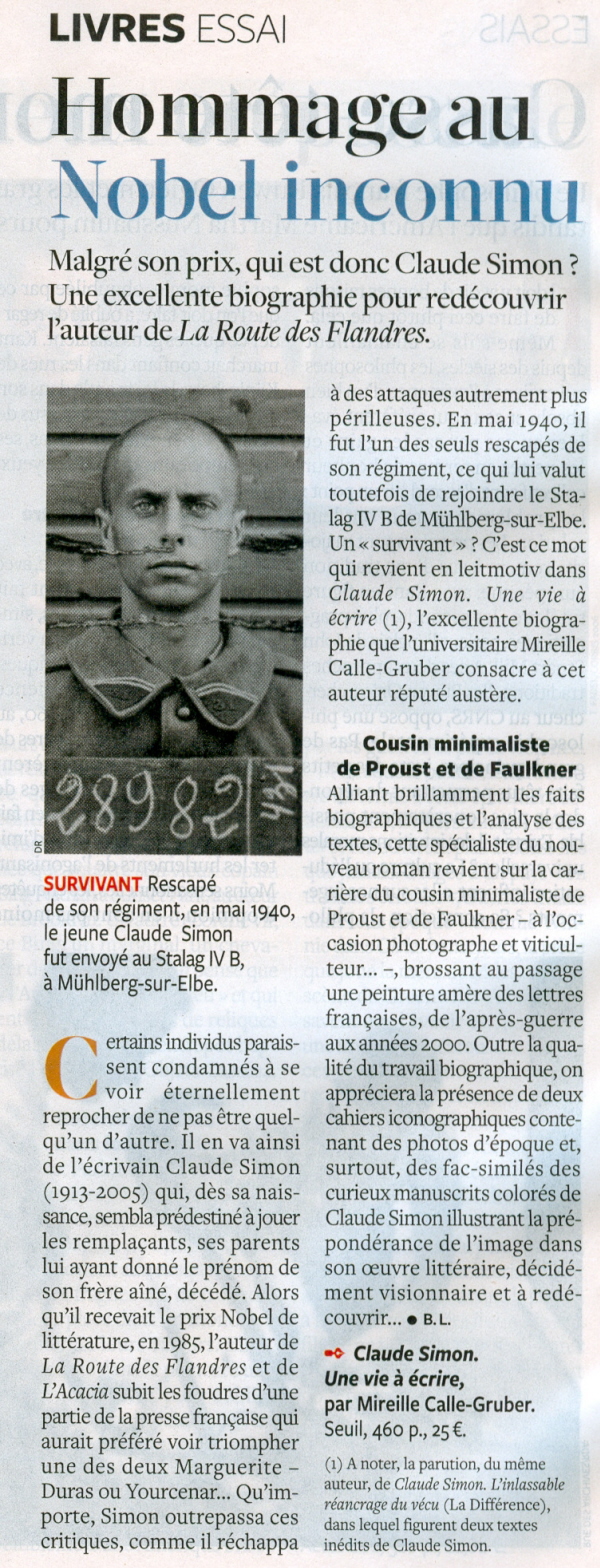 Claude
Simon: Nobel vô danh, bà con của Faulkner & Proust Bạn
không thể không Thầy mà thành nhà văn được.
Bài học TTT dạy Gấu, càng về già càng thấm. Ông
nói, nhà văn thì hằng hà sa số, nhưng dòng
văn thì đếm trên đầu ngón tay. Mày cứ đọc búa
xua, vớ được ông nào cũng đọc, và tới 1 lúc nào
đó, mày tìm ra ông Thầy của mày. Ðúng
như thế. Vừa đọc mấy dòng đầu mở ra Absalon, Absalon!, của
Faulkner, là Gấu biết ngay, đây là Thầy của mình! Quái nhất, là nếu Gấu vớ
phải 1 cuốn khác của Faulkner, thì chưa chắc đã nhận ra Thầy. Khủng thực! Phải đến khi ra được hải ngoại thì mới biết đây là ý của Borges, trong bài viết về Kafka. Chắc TTT khi đó chưa đọc Borges, chí lớn gặp nhau là vậy. 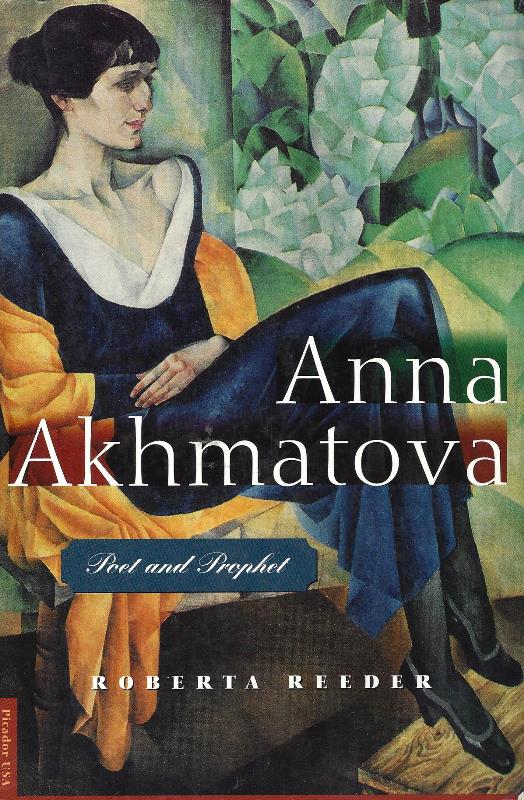
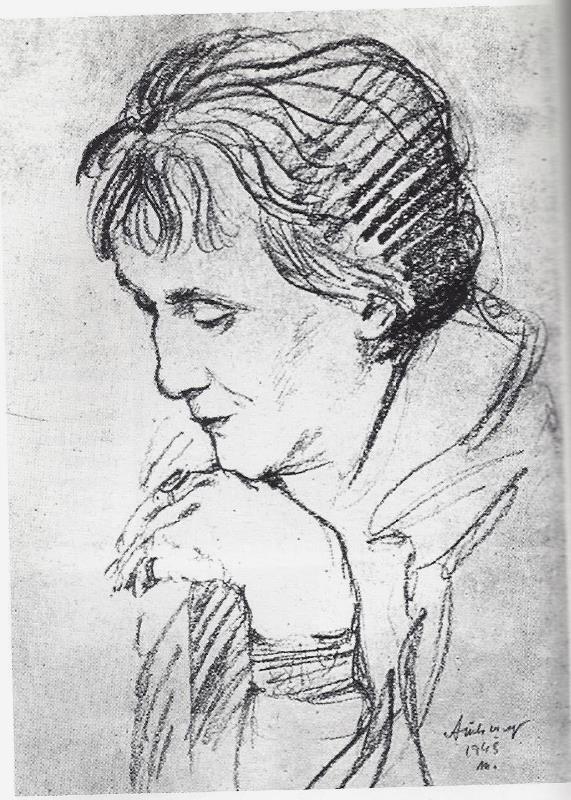
by A.G. Tyshler. courtesy Moscow collection Cái tít cuốn sách của GCC, “Nơi người chết mỉm cười” là từ “Kinh Cầu” của Akhmatova. Trong “Akhmatova, nhà thơ, nhà tiên tri”, tác giả, Roberta Reeder cho biết, chính Akhmatova cũng sợ, không dám viết ra giấy, và nhờ người học thuộc lòng, rồi đốt bỏ. Bài thơ sau đây, của Akhmatova, nhan đề “Mayakovsky vào năm 1913”. Akhmatova nói với một người quen [Anatoly Naiman], vào đầu thế kỷ, bà thực sự, genuinely, thích thơ của Mayakovsky, mặc dù thơ của Maya khác hẳn thơ của bà, và, giả như Maya ngưng làm thơ trước Cách Mạng, thì ông sẽ là nhà thơ lớn lao nhất so với bất cứ người nào ở Nga. Sau Cách Mạng, ông ta viết những dòng như “My militia cares for me” [du kích lo cho tôi], thì hết thuốc chữa [just going too far]. “Bạn có thể tưởng tượng Tyutchev - một nhà thơ lớn thế kỷ 19 - viết, “Cớm lo cho tôi” [“My police force cares for me”]? Bà tin rằng Maya thực sự hiểu chuyện gì đang xẩy ra, không như bà và bạn của bà. Bài thơ của Akhmatova miêu tả 1 con người có tài, sáng tạo và huỷ diệt, who both created and destroyed, ám chỉ, referring, ao ước của nhóm Vị Lai, the Futurist desire, vứt hết gia tài của Mẹ, của quá khứ, để xây dựng những thành quả lớn lao của tương lai. I didn't know you in your glory, I only remember your stormy dawn. But perhaps today I have the right To recall a day from those far-off years. How in your poems sounds hardened, New voices swarmed ... Your youthful hands were not lying idle, You were constructing formidable scaffolding. Everything you touched no longer seemed The same as it had been before. What you destroyed-was destroyed, A verdict beat in every word. Lonely and often dissatisfied, You rushed your fate impatiently, You knew that soon, joyful and free, You would begin your great battle. And the hum of the rising tide of response Was audible as you read to us. Rain slanted its eyes wrathfully, You quarreled violently with the city. And your still unheralded name Flew like lightning around the stuffy hall, So that today, treasured throughout the land, It might ring out like a battle cry. I didn't know you in your glory, I only remember your stormy dawn. But perhaps today I have the right To recall a day from those far-off years. How in your poems sounds hardened, New voices swarmed ... Your youthful hands were not lying idle, You were constructing formidable scaffolding. Everything you touched no longer seemed The same as it had been before. What you destroyed-was destroyed, A verdict beat in every word. Lonely and often dissatisfied, You rushed your fate impatiently, You knew that soon, joyful and free, You would begin your great battle. And the hum of the rising tide of response Was audible as you read to us. Rain slanted its eyes wrathfully, You quarreled violently with the city. And your still unheralded name Flew like lightning around the stuffy hall, So that today, treasured throughout the land, It might ring out like a battle cry. (II, p. 131) Thơ làm khi đi nuôi cá Gánh cỏ trên vai thơ trong đầu Trời chớm thu hạ muờng tượng hồng au Tung hê cỏ vụn trên hồ vắng Băm nát tình si đều nhịp dao. [Yên Báy. Bắc Việt] Thanh Tâm Tuyền
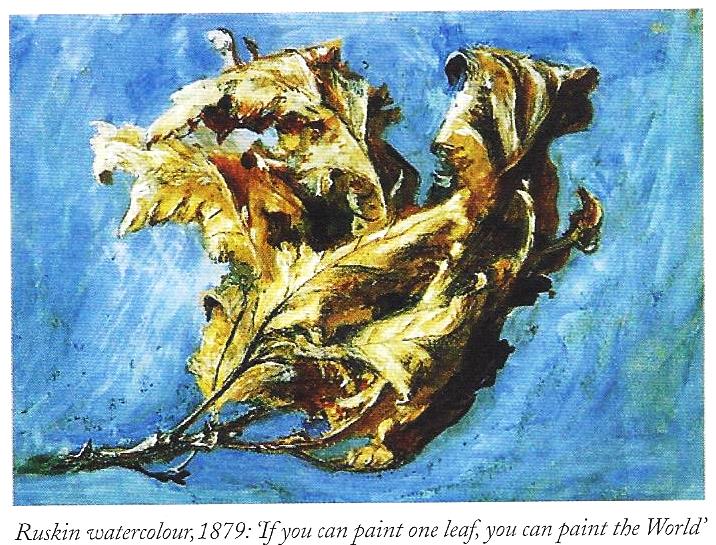 Comme la vie
est lente Lá thu vàng mới hung bạo làm sao
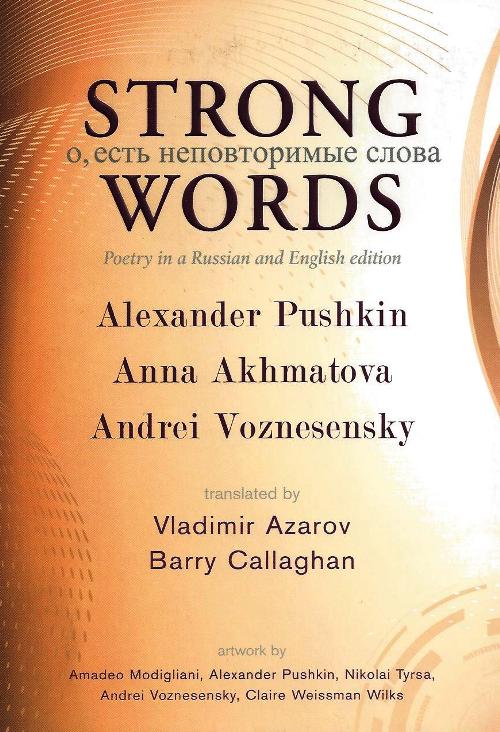
Strong Words Some writers should bite their tongues; Only the blue dome of the sky and God In His infinite mercy are inexhaustible. Anna Akhmatova, translated by Stanley Kunitz and Max Hayward
Nothing is changed: against the dining-room windowsMarch 22, 1973 Issue http://www.nybooks.com/articles/archives/1973/mar/22/the-guest/ hard grains of whirling snow still beat. I am what I was, but a man came to me. “What do you want?” I asked. “To be with you in hell,” he said. I laughed. “It’s plain you mean to have us both destroyed.” He lifted his thin hand and lightly stroked the flowers: “Tell me how men kiss you, tell me how you kiss.” His torpid eyes were fixed unblinking on my ring. Not a single muscle stirred in his clear, sardonic face. Oh, I see: his game is that he knows intimately, ardently, there’s nothing from me he wants, I have nothing to refuse. THE GUEST
Everything's just as it was: fine hard snow beats against the dining room windows, and I myself have not changed: . even so, a man came to call. I asked him: "What do you want?" He said, "To be with you in hell." I laughed: "It seems you see plenty of trouble ahead for us both." But lifting his dry hand he lightly touched the flowers. "Tell me how they kiss you,. tell me how you kiss." And his half-closed eyes remained on my ring. Not even the smallest muscle moved in his serenely angry face. Oh, I know it fills him with joy- this hard and passionate certainty that there is nothing he needs, and nothing I can keep from him. 1 January 1914 ANNA AKHMATOVA translated by Jane Kenyan and Vera Dunham "Why are you pale, what makes you reckless?" - Because I have made my loved one drunk with an astringent sadness. I'll never forget. He went out, reeling; his mouth was twisted, desolate. . . I ran downstairs, not touching the banisters, and followed him as far as the gate. And shouted, choking: "I meant it all in fun. Don't leave me, or I'll die of pain." He smiled at me - oh so calmly, terribly -- and said: "Why don't you get out of the rain?" Anna Akhmatova 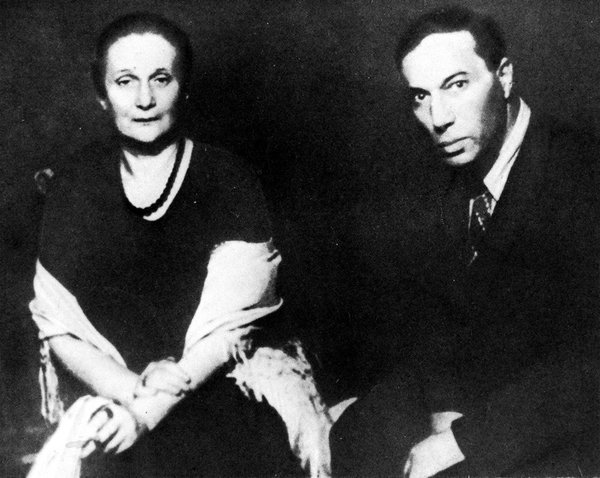 Anna Akhmatova with Boris Pasternak just after he began writing Doctor Zhivago, 1946 I WRUNG MY
HANDS I wrung my
hands under my dark veil ... I'll never
forget. He went out, reeling; And shouted,
choking: "I meant it all ANNA
AKHMATOVA translated by Max Hayward
and Stanley
Kunitz Tôi vặn
tay
tôi,
dưới chiếc khăn choàng màu tối Tôi vặn tay
tôi, dưới chiếc khăn choàng màu tối… Happy birthday to William Faulkner Celebrate by reading E.L. Doctorow's essay on ‘As I Lay Dying’: “It is possible that the way writers live can find its equivalent in their sense of composition, as if the technical daring of Faulkner’s greatest work has behind it the overreaching desire to hold together in one place the multifarious energies of real, unstoried life.”  Talking
to a class at the University of Mississippi one day late in his life,
William Faulkner remarked that his cogenerationist Ernest Hemingway
lacked courage as a writer, that he had always been too careful, never
taking risks beyond what he... nybooks.com
như một lần
chiều lồng. vào đêm. buông
những tiếng gầm. trong gió trời buông. ngàn thiên thâu phúc âm xưa. xa. vắng mong em về. chải tóc kẻ lại. một nụ hôn hong êm. đèo nắng. cũ ủ dậy. một mùi hương * đêm lồng. vào điệu. ru ơ. à ca dao. mớ trả lại buồn. mông lung ngày mai. không. ngày xưa ngọn đèn. vàng u u lần khan. trong tiếng gõ bia mộ mình. chưa tên giọt thiên thâu. một bóng Đài Sử Love
Radmila LazićI sharpened knives
All night. To welcome you In the brilliance of their blades, And among them, My love sparkles For your eyes only. Tình
Ta mài dao Suốt đêm Để chờ mi Trong cái sáng ngời của những lưỡi dao Và giữa chúng Tình ta lấp lánh For your eyes only [from The Paris Review] Xin lỗi, Chúa
Con chẳng có một xu, Chúa ơi Tim rỗng tuếch Bướm rỗng tuếch Những túi linh hồn con, bên trong lộn ra, thành bên ngoài. Trong đầu con có cái gì leng keng, leng keng Như trong cái hộp Hồng Thập Tự Xin Chúa tuồn một cái gì vào cái bóp của con Con thì rỗng, và nói như tụi Mẽo, broke. Tim con réo như cái bình nấu nước sôi pha trà Tầu Đâu đâu, nơi nơi thì phong cảnh cũng nở tung ra bằng cái đẹp Chỉ ở đây u ám đè lên mi con Con phung phá đời con như cái em gì ở trong Lỗi Buồn Chiến Tranh Như thể - mà như thể khỉ gì nữa - chẳng có ngày mai Bây giờ tới phiên Chúa, Bụt, Phật cái con khỉ gì cũng được Hãy ban cho con một điều gì đó Hãy nuôi con, hãy làm lành con Trước khi Người viết cái chó gì xuống Kinh Thánh, Kinh Phật của Người Hãy cho con, 1 con chuột nhũi, 1 đồng xu teng Hãy cho đứa con gái, người đàn bà tội lỗi này, một khẩu súng bự tổ trảng! 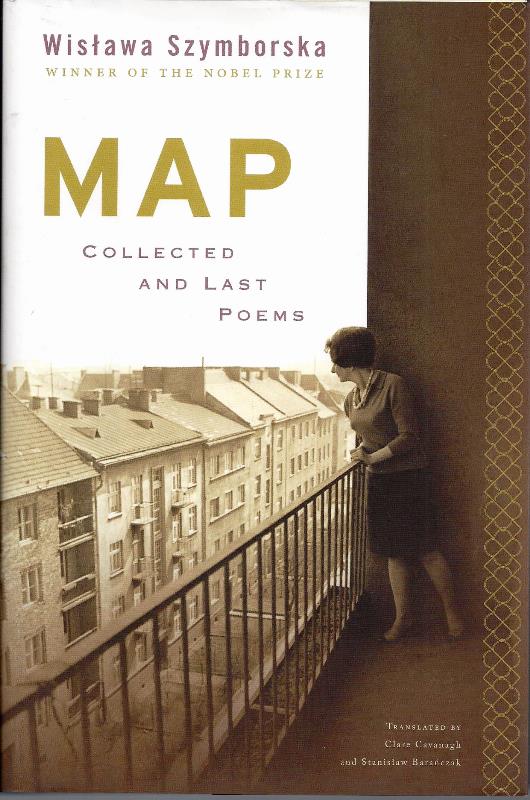
Map by Szymborska Hand
Twenty-seven bones, thirty-five muscles, around two thousand nerve cells in every tip of all five fingers. It's more than enough to write Mein Kampf or Pooh Corner. Tay
Hai mươi bảy cái xương Ba mươi lăm cái bắp thịt Cỡ chừng hai ngàn tế bào thần kinh Ở đầu, của mọi đầu, của cả năm ngón tay Vậy là quá, quá đủ Để ngồi hang Hắc Búa Hay Hác Bó cái con mẹ gì đó Dịch Sử Đảng! To My Own Poem
Best case scenario - you'll be, my poem, read attentively, discussed, remembered. Worst comes to worst, only read. A third option - actually written, but tossed into the trash a moment later. The fourth and final possibility- you slip away unwritten, happily humming something to yourself. Gửi bài thơ của chính GCC Bảnh nhất,
thì sẽ như vầy: Đọc 1 phát là thúi tới tận
Trời rùi! Giải pháp thứ
ba – Mi trượt khỏi tay ta, như… con đỉa [Kiếp trước của mi đúng là con đỉa, Một em đã từng mắng “êu” mi, nhớ không?] Trước khi mi được viết xong, hoặc, chưa có lấy 1 dòng Và huýt sáo nhè nhẹ, chân nhảy sáo, Có vẻ như hài lòng về một điều gì đó, Về chính mi. Once we had
the world backwards and forwards: History
didn't greet us with triumphal fanfares: Our wartime
loot is knowledge of the world, From Unpublished
Collection 1944-1948 Đã có thời
chúng ta có thế giới, đi và về: Lịch sử đếch
đón chào chúng ta bằng những phô trương chiến thắng Nam Kít nhận
họ Bắc Kít nhận hàng 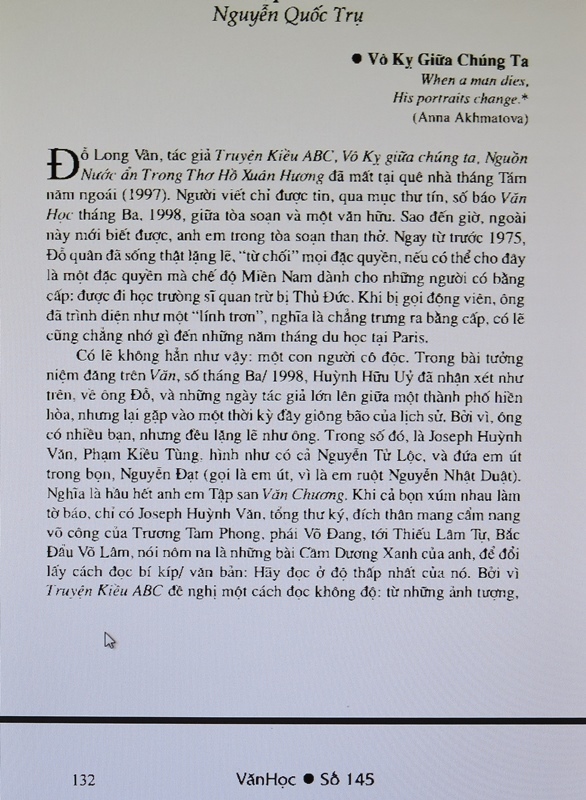
Tháng Năm, 1998

A white stone
An aching sadness has settled in me Like a white stone at the bottom of a well. A sweet sadness too bitter for words. A bitter sadness too sweet for words. If you look me straight in the eye You'll know the weight of this stone, And feel even more desultory Than if you'd read some mournful story. The gods changed men to a bestiary, But held them battened to their hearts. I've changed you to this reliquary That contains the constant ache in my heart. Anna Akhmatova Hòn đá trắng
Một nỗi buồn đau ơi là đau chiếm lấy tôiNhư một hòn đá trắng ở đáy giếng Một nỗi buồn ngọt ngào quá cay đắng cho lời Một nỗi buồn quá ngọt ngào cho lời Nếu anh nhìn thẳng vào mắt tôi Anh sẽ biết hòn đá nặng ra sao Và anh sẽ cảm thấy mới rời rạc làm sao Rời rạc hơn nhiều, so với câu chuyện thê lương nào đó Mà anh đã từng đọc Thần thánh biến đàn ông thành thú vật Nhưng bắt chúng mập như heo, mất/lấp mẹ luôn trái tim! Tôi biến anh thành thứ hòm này Chứa trong nó cơn đau nhức hoài hoài trong tim tôi. The muse
My life, it seems, hangs by a thread, As I await her coming, I am mute. And neither honours, youth, nor holy bread Are centre stage when she plays the flute. And now she is here. Lifting her veil, She holds me with her glittering eye. I ask: "Did you dictate that hellfire tale To Dante?" "Yes, I did"-she replies. Anna Akhmatova Modigliani
With Modigliani following me Through a blue Parisian fog Looking like a dispirited and Dispiriting shadow of himself, I've been shaken even in my sleep By a deep yearning remorse. Yet for me-his Egyptian woman ... An old grinder's organ moans A Paris music that intones underfoot Like the groaning sea, He'd imbibed in his shame, Drunk his fill of grief and hard times. In St. Petersburg's National Library there is an Akhmatova manuscript, "Poem Without A Hero." In its margins, Akhmatova has written lines to Amedeo Modigliani. Akhmatova never did include this poem among her works. It was not published until 1980. Modigliani
Với Modigliani theo tôi, Qua sương mù xanh Paris, Như bóng ma vất vưởng của chính chàng Trong đêm khuya, Tôi rụng rời bị dựng dậy Bởi chính nỗi niềm ân hận miên man của mình Tuy nhiên với tôi, người đàn bà Ai Cập của chàng…. Cây đàn organ của một tay thợ mài già rên rỉ Một khúc nhạc Paris ngân ngư dưới chân Như biển lầm bầm Thấm đậm nỗi tủi hổ Chàng uống đầy nỗi đau, và cực nhọc. THE MUSE
When at night I await the beloved guest,Life seems to hang by a thread. "What is youth?" I demand Of the room. "What is honor, freedom, the rest, In the presence of her who holds the flute in her hand?" But now she is here. Tossing aside her veil, She considers me. "Are you the one who came To Dante, who dictated the pages of Hell To him?" I ask her. She replies, "I am." 1924 Nữ Thần Thi Ca
Ðêm, ta đợi vị khách quí Ðời như treo sợi chỉ "Tuổi trẻ là cái chi chi"?", Ta hỏi căn phòng “Danh dự, tự do, cái còn lại, Thì là cái gì, trước nàng, người cầm cây sáo ở trong tay? Nhưng bây giờ, nàng ở đây. Kéo cái mạng che mặt qua một bên, nàng nhìn ta ra ý dò hỏi. “Bà có phải là người đọc từng trang Ðịa Ngục cho Dante chép, phải không?” Ta hỏi nàng. “Không phải ta, thì là ai?” Note: Bài diễn văn này,
Gấu nhớ là, dịch cũng từ thời Diễm Xưa, cái thời bắt đầu mê...
nữ thi sĩ, và nhân đó, bèn mê thơ.
Nội dung của nó, thì đúng như là cái tít, thi sĩ và thế giới. Chẳng có “trong”, mà cũng chẳng có “hôm nay”. Viết Mỗi Ngày http://www.gio-o.com/LyOcBR/LyOcBrWisTom2baitho.htm The Nobel Prize in Literature 1996 was awarded to Wislawa Szymborska "for poetry that with ironic precision allows the historical and biological context to come to light in fragments of human reality". Giải Thưởng Nobel Văn Chương 1996 dành cho Wislawa Szymborska "vì nền thi ca trào phúng chính xác cho phép văn cảnh thuộc lịch sử và sinh học trong những mảnh đời nhân thế được soi sáng". Lý Ốc dịch Theo GCC, dịch giả không thèm để ý đến “phân tích loại từ”, analyse grammaticale. Trong cụm từ trên, precison là danh từ, ironic là tĩnh từ, bổ nghĩa [modify] cho precison. Khi dịch ra tiếng Mít, ironic biến thành danh từ. Đúng ra phải dịch, đại khái, S được Nobel vì thơ của bà, với sự chính xác có tính hài hước, [nó] cho phép cái nội dung mang tính lịch sử và sinh học, phơi ra trước ánh sáng, trong những mẩu đoạn của thực tại con người. Tiếng Việt không phân biệt rõ ràng về tự loại, nhưng người dịch phải biết, nếu không, độc giả không biết đuờng nào mà lần! Hơn nữa 1 vòng hoa Nobel là cả 1 kỳ công của Viện Hàn Lâm. Làm sao chỉ vài chữ, mà nói lên được cả hai, một, cõi văn của người được, và một, cái tôn chỉ của giải Nobel. Going Home It was clear, though, that something had gone wrong. He lay down fully dressed. Pulled the blanket over his head. Tucked up his knees. He's nearly forty, but not at the moment. He exists just as he did inside his mother's womb, clad in seven walls of skin, in sheltered darkness. Tomorrow he'll give a lecture on homeostasis in metagalactic cosmonautics. For now, though, he has curled up and gone to sleep. Wislawa Szymborska Về Nhà
Chàng về nhà. Nín thinh không nói.Rõ ràng, dù sao, đã có chuyện gì trắc trở. Chàng nằm dài để nguyên bộ cánh. Kéo mền trùm kín mít. Co quắp hai gối chèo queo. Chàng gần tứ thập, nhưng lắm lúc như em thơ. Chàng hiện hữu như là bào thai trong bụng mẹ, gói giữa bảy lớp thành da, ẩn trú trong cõi huyền thiên sâu thẳm. Ngày mai chàng sẽ đọc một diễn văn về sự cân bằng trong những chuyến du hành ngoài vũ trụ. Còn bây giờ, dù sao, chàng cũng đã cuộn mình trôi vào giấc ngủ. Lý Ốc dịch Vv “chính xác tiếu lâm”. Nếu đúng như thế, thì “not at the moment” không thể dịch là “lắm lúc như trẻ thơ được”, mà phải dịch “không, vào lúc này”, vì tác giả giải thích, lúc này, chàng như con sâu nằm trong bụng mẹ, và đây là ý nghĩa của từ “về nhà”! 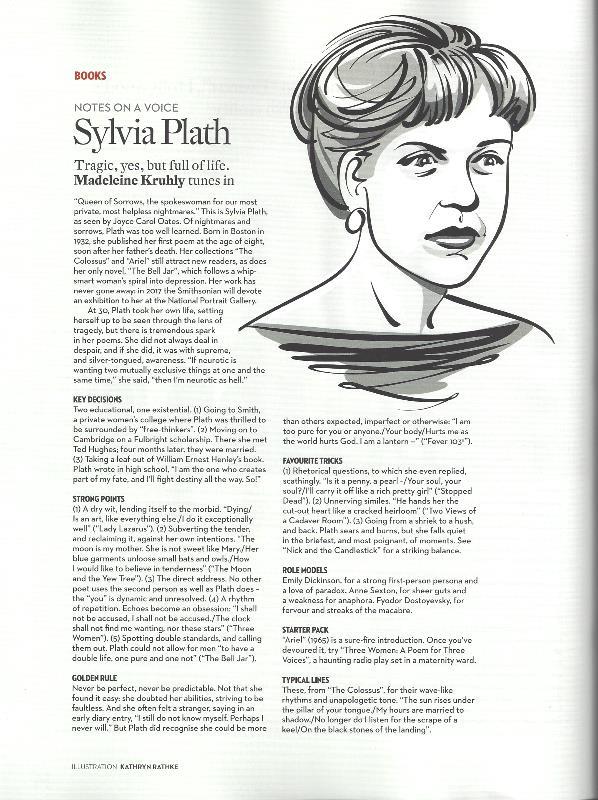
NOTES ON A VOICE Sylvia Plath Tragic, yes, but full of life. Madeleine Kruhly tunes in "Queen of Sorrows, the spokeswoman for our most private, most helpless nightmares." This is Sylvia Plath, as seen by Joyce Carol Oates. Of nightmares and sorrows, Plath was too well learned. Born in Boston in 1932, she published her first poem at the age of eight, soon after her father's death. Her collections 'The Colossus" and "Ariel" still attract new readers, as does her only novel, "The Bell Jar", which follows a whip- smart woman's spiral into depression. Her work has never gone away: in 2017 the Smithsonian will devote an exhibition to her at the National Portrait Gallery. At 30, Plath took her own life, setting herself up to be seen through the lens of tragedy, but there is tremendous spark in her poems. She did not always deal in despair, and if she did, it was with supreme, and silver-tongued, awareness. "If neurotic is wanting two mutually exclusive things at one and the same time," she said, "then I'm neurotic as hell." KEY DECISIONS Two educational, one existential. (1) Going to Smith, a private women's college where Plath was thrilled to be surrounded by "free-thinkers". (2) Moving on to Cambridge on a Fulbright scholarship. There she met Ted Hughes; four months later, they were married. (3) Taking a leaf out of William Ernest Henley's book. Plath wrote in high school, "I am the one who creates part of my fate, and I'll fight destiny all the way. So!" STRONG POINTS (1) A dry wit, lending itself to the morbid. "Dying/ Is an art, like everything else./I do it exceptionally well" ("Lady Lazarus"). (2) Subverting the tender, and reclaiming it, against her own intentions. "The moon is my mother. She is not sweet like Mary./Her blue garments unloose small bats and owls./How I would like to believe in tenderness" ("The Moon and the Yew Tree"). (3) The direct address. No other poet uses the second person as well as Plath does - the "you" is dynamic and unresolved. (4) A rhythm of repetition. Echoes become an obsession: "I shall not be accused, I shall not be accused./The clock shall not find me wanting, nor these stars" ("Three Women"). (5) Spotting double standards, and calling them out. Plath could not allow for men "to have a double life, one pure and one not" ("The Bell Jar"). GOLDEN RULE Never be perfect, never be predictable. Not that she found it easy: she doubted her abilities, striving to be faultless. And she often felt a stranger, saying in an early diary entry, "I still do not know myself. Perhaps I never will." But Plath did recognize she could be more than others expected, imperfect or otherwise: "I am too pure for you or anyone./Your body/Hurts me as the world hurts God. I am a lantern -" ("Fever 103"). FAVOURITE TRICKS (1) Rhetorical questions, to which she even replied, scathingly. "Is it a penny, a pearl-/Your soul, your soul? /1'11 carry it off like a rich pretty girl" ("Stopped Dead"). (2) Unnerving similes. "He hands her the cut-out heart like a cracked heirloom" ("Two Views of a Cadaver Room"). (3) Going from a shriek to a hush, and back. Plath sears and burns, but she falls quiet in the briefest, and most poignant, of moments. See "Nick and the Candlestick" for a striking balance. ROLE MODELS Emily Dickinson, for a strong first-person persona and a love of paradox. Anne Sexton, for sheer guts and a weakness for anaphora. Fyodor Dostoyevsky, for fervour and streaks of the macabre. STARTER PACK "Ariel" (1965) is a sure-fire introduction. Once you've devoured it, try "Three Women: A Poem for Three Voices", a haunting radio play set in a maternity ward. TYPICAL LINES These, from "The Colossus", for their wave-like rhythms and unapologetic tone. "The sun rises under the pillar of your tongue./My hours are married to shadow./No longer do I listen for the scrape of a keel/On the black stones of the landing". Mỗi đàn bà lấy một tay phát xít. [Chaque femme épouse un fasciste]. Sylvia Plath: Chuông Tuyệt Vọng [Cloche de détresse. Nhà xb Denoel]. "Pauvre Sylvia Plath", nàng Sylvia Plath đáng thương, bài viết trên tờ Lire, số tháng 11, 2004, mở đầu. Sylvia Plath [1932-1963]: Một thứ Virginia Woolf của thập niên 1960, và cũng tự huỷ mình như Woolf, nhưng chán đời theo một kiểu hoang dại, sauvage, hơn nhiều. Ngôi sao băng trên nền trời thi ca Mẽo, tuy thoáng hiện rồi mất tích, nhưng để lại dấu ấn trên rất nhiều nhà văn, rất ư là khác biệt trong số họ, như: Adrienne Rich, Erica Jong, hay Philip Roth. Tên miền của bà [Son territoire]: Sự tự thú [la confession]. Khí giới của bà: Sự hung bạo bất thần [la violence pulsionnelle] Chuông Tuyệt Vọng: Một thứ tiểu thuyết nửa nhật ký riêng tư, nửa giả tự thuật về mình [mi-journal intime, mi-autofiction], một cuốn sách thờ, và câu văn nổi tiếng kể trên, đã trở thành tuyên ngôn của phong trào giải phóng phụ nữ. 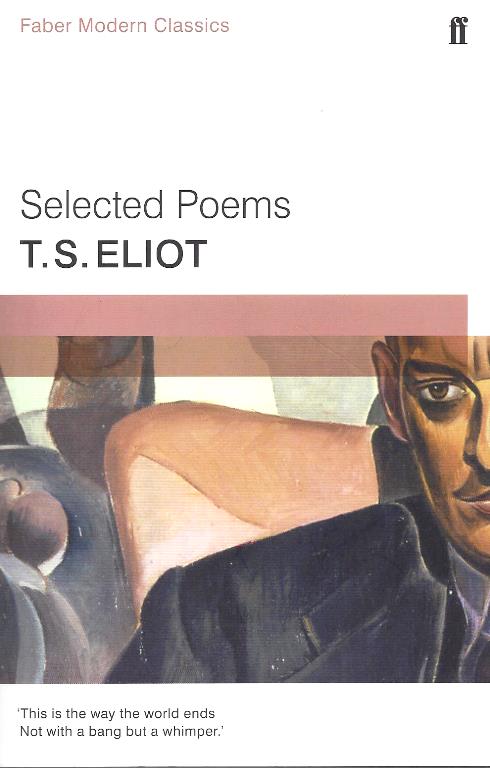
Đó là cách thế giới đi đong Không "đoàng" 1 phát Nhưng mà là xụt xùi Time present and time past Are both perhaps present in time future, And time future contained in time past. If all time is eternally present All time is unredeemable. The Moon There is such loneliness
in that gold. -W.B. Trăng Có cái cô
đơn khủng khiếp như thế đó ở trong mảnh trăng vàng. VASKOPOPA [1922-1991] The most widely translated and best-known postwar Yugoslav poet. He was born in Grebenac near the Rumanian border and died in Belgrade. Popa was educated in Bucharest, Vienna, and Belgrade. During the Second World War he was imprisoned by the Nazis. Influenced by French surrealism, his bestknown books are Crust (1953), Restless Field (1954), and Wolf Salt (1975). He was the editor of three influential anthologies of folk material, Serbian humor, and poets' dreams. Charles Simic: The Horse Has Six Legs, an anthology of Serbian Poetry Rose Thieves
Someone is a rose bush The others are wind's daughters The others are rose thieves The rose thieves sneak up to the rose One of them steals it Hides it in his heart The wind's daughters appear See the picked beauty And run after the thieves They open their hearts one by one In one they find a heart In another so-help-me nothing They open and open their chests Until they find a heart And in that heart a stolen rose RADE DRAINAC [1899-1943] Drainac was a famous Belgrade bohemian who spent his life in the taverns of the city, often playing the violin. He served in the Serbian army in the First World War. His first book, Purple Laughter, was published in 1920. He wrote three more collections of poetry, plus a novel and a war diary. He was influenced by Apollinaire, Cendrars, and Esenin. He died of consumption. Leaf
I've changed stations: autumn remained behind and my bags. The sky now is doubtful like an awkward lie. In the first tavern I'll need to forget the melancholy letter that woke me from my sleep. Idle, I stagger down the street past offices. The swallows have flown and the typewriters have stayed. One the horizon there is a huge trumpet of smoke. A plane has just been invented as small as a butterfly. Bravo! That's a good Sign. The first autumn leaf falls on my hat. LET'S GO
for L Let's go- Fallen leaves blow into deep valleys But the song has no home to return to. Let's go- Moonlight on the ice Has spilled beyond the river bed. Let's go- Eyes gaze at the same patch of sky Hearts strike the twilight drum. Let's go- We have not lost our memories We shall search for life's pool. Let's go- The road, the road Is covered with a drift of scarlet poppies. Hãy đi
Gửi L Hãy đi – Lá khô xào xạo lũng sâu Nhưng bài hát không có nhà để mà trở về Hãy đi – Ánh trăng trên mặt băng Tràn quá lòng sông Hãy đi – Mắt nhìn vẫn đường trời Tim đập trống hoàng hôn Hãy đi – Chúng ta chưa mất hồi ức Sẽ tìm được ao đời Hãy đi – Con đường, con đường Phủ bụi nha phiến đỏ Bắc Đảo Bei Dao Note: Coi lại, hóa ra dịch rồi: Đi thôi- Lá rụng dạt xuống thung lũng sâu Nhưng bài hát không có nhà để trở về Đi thôi- Trăng sáng trên mặt băng, Tràn quá lòng sông Đi thôi- Mắt, vẫn mảnh trời Tim, nhịp hoàng hôn Đi thôi- Đôi ta chưa mất kỷ niệm Sẽ tìm ao đời Đi thôi- Con đường, con đường Lều bều anh túc đỏ My Letter to the World
Destination
As we rode into the village we came upona convergence of old customs: there was an empty house and the door stood wide open. The men from the village lugged a cupboard into the house. The men from the village hauled a table into the house. The men from the village heaved a bed into the house. And the women of the village bore dishes and plates and glasses and something to make the bed habitable into the house. Then the men pushed a son inside. Learn to light a fire, they said, learn to put out a fire, they said, we’re latching the shutters. Then the women pushed a daughter inside. Learn to be hot, they said, learn to be cold, they said, we’re barricading the door. (Translated, from the Dutch, by Jacquelyn Pope.) Nơi tới
Khi vô làng, chúng tôi tới khu cổ tục: Một căn nhà trống, cửa mở toang Những người đàn ông trong làng kéo một cái tủ vô đó Những người đàn ông trong làng lôi một cái bàn vô căn nhà Những người đàn ông trong làng nhấc một cái giường vô nhà Và những người đàn bà trong làng Mang chén dĩa ly và một cái gì đó, Làm cho cái giường trở thành một nơi ăn ngủ được, ở trong căn nhà Và rồi thì những người đàn ông đẩy 1 đứa con trai vào trong Hãy học đốt một ngọn lửa, họ nói Chúng ta đang đóng những cánh cửa sổ Rồi thì những người đàn bà đẩy một đứa con gái vô Hãy học nóng, họ nói Hãy học lạnh, họ nói Chúng ta đang cài then cửa. 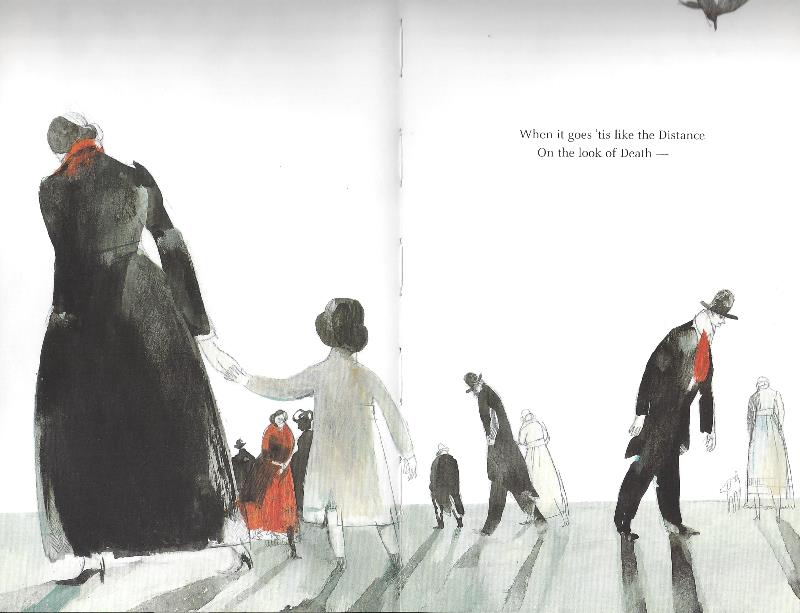
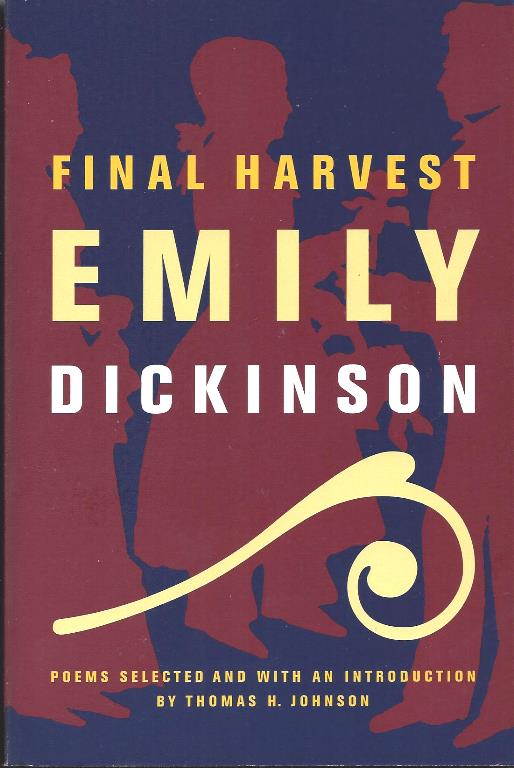
Because I could not stop for Death - He kindly stopped for me - The Carriage held but just Ourselves - And Immortality. Em không thể ghé thăm Thần Chết Nên dịu dàng Người đến đưa Em Cỗ xe lăn bánh êm đềm Người, và Bất Tử cùng Em lên đường K dịch Note: “Mùa gặt chót” là tuyển từ toàn tập,
gồm 567 bài, rút ra từ 1,775 bài. Bài Intro, thật là tuyệt. Gấu thú thực,
không làm sao đọc được thơ của bà này. Đây là cú thử chót!
A Word that breathes distinctly Has not the power to die Một Từ mà thở một cách rành mạch Không có sức mạnh để chết 1 YEAR AGO TODAY Fri, Sep 12, 2014 In Praise of Worms I only have faith in you, Mr. Worm. 1 Like In Praise of Worms I only have faith in you, Mr. Worm. A stroke of lightning and a few raindrops Cross out a name here and there, Charles Simic: New and selected poems Bài ngợi ca Giun Tớ chỉ có niềm tin ở nơi mi, Mr. Tin Văn, ấy chết xin lỗi, Mr. Giun Một cú sấm sét và vài giọt mưa Gạch bỏ một cái tên, chỗ này, chỗ nọ In Praise of Feeling Bad about Yourself
The buzzard never says it is to blame. The panther wouldn't know what scruples mean. When the piranha strikes, it feels no shame. If snakes had hands, they'd claim their hands were clean. A jackal doesn't understand remorse. Lions and lice don't waver in their course. Why should they, when they know they're right? Though hearts of killer whales may weigh a ton, in every other way they're light. On this third planet of the sun among the signs of bestiality a clear conscience is number one. Szymborska: Map Tự Xoa Đầu Mình, là, Bad Gấu.
Gửi HPNT, of course. GCC
Con ó không bao giờ phán, bậy quá, bậy quá, tớ có mặt ở Huế bữa đó, (chẳng bao giờ kêu rằng lỗi tại tôi) Con báo làm sao biết, đắn đo nghĩa là gì. Khi con cá ăn thịt người piranha tấn công, nó chẳng thấy xấu hổ Nếu rắn có tay, nó sẽ nói, sạch như tay HPNT! Một con chó rừng không hiểu hối hận là gì Sư tử và chấy rận không lưỡng lự trong cuộc săn của chúng Tại sao lưỡng lự, khi chúng biết, chúng có lý? Mặc dù trái tim của những con cá voi giết người nặng cả tấn Nhìn theo cách khác, chúng nhẹ tênh Trên hành tinh thứ ba này của mặt trời Trong những biểu hiện của thú tánh Lương tâm sáng choang là số 1. Note: Biết đâu đấy, nhờ bài thơ này, đao phủ Mậu Thân “đi” được Cũng là 1 cách về chầu Người, như bạn Cà của Gấu, hay như thi sĩ dởm NDT! Người xưa, đốt Đền Thiêng để được nổi tiếng, đời nay, dựa hơi đao phủ chắc cũng rứa, nhất là thời mà như Kun phán: « Ce n'était pas seulement le temps de l'horreur, c'était aussi le temps du lyrisme! Le poète régnait avec le bourreau ". Đâu chỉ là thời của ghê rợn, của CCRD, của Đấu Tố, của Nhân Văn Giai Phẩm, mà còn là thời của thơ ca trữ tình, Mặt Trời Chân Lý Chói Qua Tim, Đường Ra Trận Mùa Này Đẹp Lắm. Thời Của Văn Cao: Thi sĩ lên ngôi trị vì cùng với đao phủ. Amen! Anh Gấu lúc nào cũng là anh Gấu ! Thế nào cũng phải chen vào vài từ trong những bài viết, không có không được . Bài thơ hay quá . K Dịch là phản, mà! Tks GCC
Poems September 14, 2015 Issue
Destination
http://www.newyorker.com/magazine/2015/09/14/destination-poems-hester-knibbe By Hester Knibbe As we rode into the village we came upon a convergence of old customs: there was an empty house and the door stood wide open. The men from the village lugged a cupboard into the house. The men from the village hauled a table into the house. The men from the village heaved a bed into the house. And the women of the village bore dishes and plates and glasses and something to make the bed habitable into the house. Then the men pushed a son inside. Learn to light a fire, they said, learn to put out a fire, they said, we’re latching the shutters. Then the women pushed a daughter inside. Learn to be hot, they said, learn to be cold, they said, we’re barricading the door. (Translated, from the Dutch, by Jacquelyn Pope.) BITTER
LEMONS In an island
of bitter lemons And the dry
grass underfoot Better leave
the rest unsaid, Their
memorials of sleep LAWRENCE DURRELL Father in Heaven
I had not thought there were so many Whose sole delight in life Was to bring misery to others. How the crowds adore them! How they cheer their endless wars! It makes me lose my faith. Braving this January wind and snow, After a night of bad dreams And spells of anger at him For dying young and leaving me here To beat with raw fists Against the padlocked cemetery gate, Begging man or god to let me in. Charles Simic: Master in disguises Cha ở trên Trời
Tớ không nghĩ có nhiều kẻ đến như thế Niềm thống khoái độc nhất của chúng Là mang đau khổ tới cho người khác Làm sao mà quần chúng – dân Mít, lũ VC nằm vùng… tất nhiên – Lại mê chúng đến như thế! Điều này làm Gấu mất mẹ niềm tin Coi thường Tháng Giêng, với gió và tuyết Sau 1 đêm đầy mộng dữ Và giận dữ, chửi um lên Tại làm sao Mi chết trẻ và để mặc ta 1 mình ở đây Uýnh lộn, với đôi tay trần Với cái cổng nghĩa địa Năn nỉ, Trời hoặc Người Làm ơn cho thằng cha GCC vô! Carrying On Like a Crow
Are you authorized to speak For these trees without leaves? Are you able to explain What the wind intends to do With a man's shirt and a woman's nightgown Left on the laundry line? What do you know about dark clouds? Ponds full of fallen leaves? Old-model cars rusting in a driveway? Who gave you the permission To look at the beer can in a ditch? The white cross by the side of the road? The swing set in the widow's yard? Ask yourself, if words are enough, Or if you'd be better off Flapping your wings from tree to tree And carrying on like a crow. Charles Simic: Master in disguises Khệ nệ như con quệ
Mi được phép nói Nhân danh những cái cây trụi lá? Mi có thể giải thích Gió tính làm gì Với cái sơ mi của người đàn ông Và cái áo ngủ của người đàn bà Bỏ lại trên sợi dây phơi đồ? Mi biết gì về những đám mây đen? Con hồ đầy lá rụng? Xế hoang gỉ bỏ mặc trên lối đi? Ai cho phép mi Nhìn 1 phát như thế Cái lon bia ở cái mương? Cái thập tự trắng bên vệ đường? Cái đu cho trẻ con chơi ở vườn bà góa? Hãy hỏi chính mi, nếu từ không đủ Hay, bỏ đi Đập đập cánh, Từ cây này tới cây kia Khệ nệ như con quệ. The Invisible
A rusty key from a cigar box full of keys 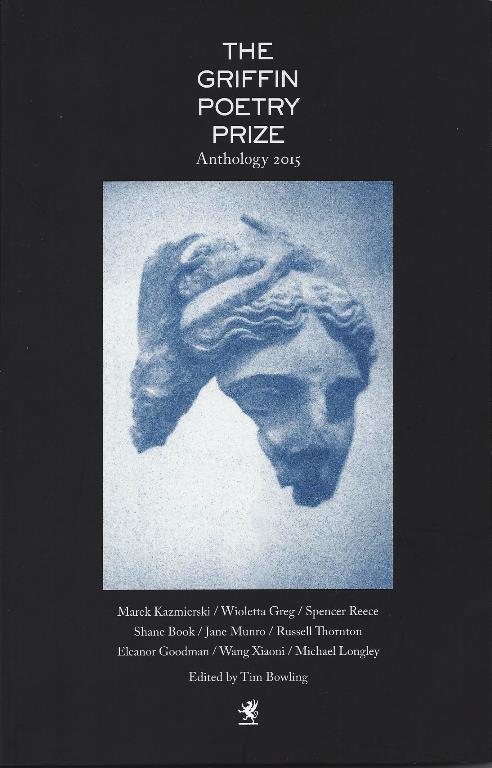
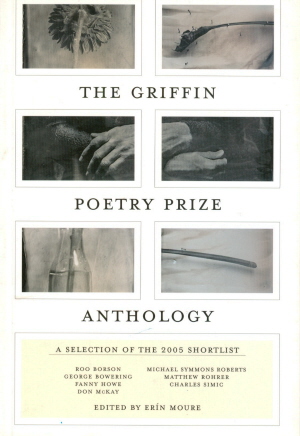
http://www.griffinpoetryprize.com/awards-and-poets/shortlists/2005-shortlist/charles-simic/ Số
cũ, có Simic. Số mới, có mấy bài thật là thần sầu. Câu thơ, bìa sau, của
Seamus Heanley, cũng tuyệt & lạ: Thơ là ngôn ngữ trên quỹ đạo, Poetry
is language in orbit.
The Griffin Poetry Prize, của Canada, được coi là 1 trong những giải thưởng thơ bảnh nhất trên thế giới. Quả thế thực. Bèn chứng tỏ, bằng 1 bài thơ của 1 em Tẫu, kèm lời giới thiệu của 1 em mũi lõ. WANG XIAONI
ELEANOR GOODMAN Something Crosses My Mind What is so attractive about Wang Xiaoni's poems as translated into English by Eleanor Goodman is her quiet, loving, meditative distance to the mostly anonymous and lonely heroes she clearly knows well. And her attitude to time, which she keeps dragging out of its anchored localities (and barely marked history) to extend and connect, or fuse with specific spaces that she also enlarges in size and scope. Moments prolong into a century or a life, imaginary beasts meld with real animals, description becomes an act of meditation. In a few lines, a village can take on the dimension of a vast landscape - and yet still remain that particular village. And while Xiaoni's characters may not speak, they seem to have a real insight into our experience and lives. In a way nothing much happens in her magic lyricism: the wind blows, the ocean rises, people work or move from one place to another, or wait, or just leave some place, and they have souls (which behave like shadows). Reading her, I found myself repeating Auden's phrase ''About suffering they were never wrong, / The old Masters." Wang Xiaoni is a terrific contemporary poet gracefully extending the great classical Chinese tradition. Seeing the Ocean from a Night Flight
Everything becomes small only the ocean makes the night's leather clothes open up the further out it spreads. Flying north to the right is Tianjin to the left is Beijing two clusters of moths flinging themselves at fire. Then the East China Sea suddenly moves the wind brings silver bits that can't be more shattered and many thick wrinkles whip up I see the face of the ocean I see the aged seashore trembling and hugging the world too tightly. I have seen death but never seen death come back to life like that. Note: Bài điểm sách trên Người Kinh Tế. Bài này thật tuyệt. Nó cho thấy 1 số điều, về kháng chiến Pháp, thời bị Nazi đô hộ. Số này còn có bài ai điếu, một vật lý gia, được coi là 1 Newton của môn chơi thể thao tennis, cũng thật là tuyệt. Bạn còn nhớ định luật vật lý, nếu 1 vật, không có lực nào tác động vô nó, và nếu nó đứng yên, thì đứng yên hoài, và nếu nó chuyển động, thì chuyển động hoài, vận tốc không đổi.... Howard Brody, Vật lý học về môn tennis Poetry
Remembering life in Romania under communist rule http://www.economist.com/blogs/prospero/2015/09/poetry It was always here. Its vast terrors concealed By this costume party Of flowers and birds And children playing in the garden. Only the leaves tell the truth. They rustle darkly, Then fall silent as if listening To a dragonfly Who may know a lot more of the invisible, Or why else would its wings be So translucent in the light, So swift to take flight, One barely notices It's been here and gone. Những Người Vô Hình
1 Nó luôn luôn ở đó. Những nỗi ghê rợn rộng lớn của nó thì được giấu kín Bằng bữa tiệc đại tiệc bận đồ lớn này: Ba muơi năm mới có ngày hôm nay, vui sao nước mắt lại trào? Nào hoa, nào chim Và những đứa trẻ chơi ở công viên Lê Văn Tám Chỉ những chiếc lá nói sự thực Chúng rì rào âm u Rồi buông mình xuống Như lắng nghe, một con chuồn chuồn Có thể biết khá nhiều về những kẻ vô hình, Hay là tại sao cánh của nó lại trong mờ như thế, dưới ánh sáng Nhanh như thế, mỗi khi cất cánh Vừa mới thấy nó, mà đã bay đi mất rồi: Chuồn chuồn có cánh thì bay Có thằng VC đang rình mày đây nè! 2 Don't the shadows know something about it? The way they, too, come and go As if paying a visit to that other world Where they do what they do Before hurrying back to us. Just today I was admiring the one I cast As I walked alone in the street And was about to engage it in conversation On this very topic When it took leave of me suddenly. Shadow, I said, what message Will you bring back to me, And will it be full of dark ambiguities I can't even begin to imagine As I make my slow way in the midday sun? 2 Liệu những bóng đen biết gì về nó? Cái cách mà chúng, cũng thế, tới và đi Như làm 1 cú viếng thăm vương quốc của những người đã chết Nơi chúng làm điều chúng làm Trước khi vội vã trở lại với chúng ta. Đúng ngày hôm nay Gấu trầm trồ chiêm ngưỡng một cái bóng đen mà Gấu tóm được Trong khi đi một mình trên con phố Nguyễn Du tưởng tượng Và Gấu vừa mới mon men gạ chuyện Thì bóng đen này đã bất thình lình rời bỏ Gấu BHD đó ư, Gấu gọi theo? Thông điệp nào em mang về cho anh cu Gấu? Liệu nó thì đầy những hàm hồ u tối Gấu không thể nào mà biết được, dù tưởng tượng cách mấy, Trong khi lừ đà lừ đừ giữa trưa, một ngày nắng ấm Sài Gòn? 4 The moment you shut off the lamp, Here they are again, The two dead people You called your parents. You'd hoped you'd see tonight The girl you loved once, And that other one who let you Slip a hand under her skirt. Instead, here's that key in a saucer of small change That wouldn't open any lock, The used condom you found in church, The lame crow your neighbor kept. Here's the fly you once tortured, A rock you threw at your best friend, The pig that let out a scream As the knife touched its throat. 4 Đúng vào lúc bạn tắt đèn Họ trở lại Hai người đã mất Bạn gọi họ là hai đấng sinh thành. Bạn sẽ mơ đêm nay Bạn gặp lại cô bạn gái ngày nào Cô gái đã từng yêu bạn Và một cô khác nữa Đã từng cho phép Bàn tay của bạn lùa bên dưới Chiếc áo bà ba của cô. Thay vì vậy, thì đây là chiếc chìa khóa, trên cái dĩa đựng ba thứ lặt vặt, chẳng thể mở bất cứ 1 cái cửa Cái áo mưa đã xài rồi bạn kiếm thấy ở nhà thờ [và ở blog của hòa thượng THT], Con quạ què mà người hàng xóm của bạn giữ Đây là con ruồi mà bạn đã tra tấn Cục đá bạn ném vào người bạn tốt nhất của bạn Con heo ré lên một tiếng rùng rợn Khi mũi dao thọc vô cổ của nó 5 People here still tell stories About a blind old man Who rolled dice on the sidewalk And paid children In the neighborhood To tell him what number came up. When they were away in school, He'd ask anyone Whose steps he heard, The mailman making his rounds, The undertakers loading a coffin in their black wagon, And you, too, mister, Should you happen to come along. 5 Người ở đó vẫn truyền tụng Về một ông già mù Thẩy xúc xắc bên lề đường Và giúi tiền cho mấy đứa con nít Để chúng cho ông biết Con lục, hay con nhất. Khi chúng ở lớp học Ông hỏi bất cứ một người Khi nghe tiếng chân Anh đưa thư đi lòng dzòng Đám nhà hòm đưa hòm lên xe tang Hay chính ông, Thưa Ngài Nếu ông lớ ngớ mò tới đó. 7 Dear Miss Russell: Nights, you took me on a private tour Of the empty town library. I could hardly keep up As you darted along the rows of books, Whispering their names, Pointing out the ones I ought to read, Then forgetting all about me, Pulling the light cord And leaving me in the dark To grope for a book Among the shelves, Surely the wrong one, As I was soon to learn At the checkout desk Under your pitying gaze That followed me into the street Where I dared not stop To see what I held in my hand Until I had rounded the corner. 7 Cô Russell thân mến: Ðêm, cô dẫn một mình em, Tới thư viện trống rỗng của thành phố. Em không làm sao theo kịp, Khi cô dảo nhanh qua những dẫy sách, Thì thầm những cái tên Giơ ngón tay chỉ những cuốn em cần đọc, Rồi thì hoàn toàn quên đứa học trò, Cô giựt sợi dây đèn, Và để mặc em trong bóng tối, Sờ soạng tìm một cuốn, Giữa những giá sách, Hẳn nhiên rồi, không phải cuốn đó Chẳng mấy chốc em hiểu liền sau đó, Khi tới bàn của cô thủ thư, Dưới cái nhìn thương hại của cô giáo của mình, Cái nhìn theo em ra tận đường phố, Nơi em sợ không dám dừng lại, Ðể coi cái cuốn cầm trong tay là cuốn chi chi Cho tới khúc ngoặt ở một góc phố. 6 Dark evening, gray old tenement, A white cat in one window, An old man eating his dinner in another. Everyone else hidden from view, Like the one who waits for the tub To fill up with hot water While she undresses before a mirror Already beginning to steam over. Imagination, devil's helper, Made me glimpse her two breasts As I hurried by with my face tucked in my collar, Because the wind was raw. 6 Chiều âm u, nhà cũ, xám Một con mèo trắng ở 1 cửa sổ Một ông già ăn, ở 1 cái khác Mọi người khác thì đều tránh né cái nhìn Như 1 kẻ đợi nước nóng vô đầy bồn tắm Nàng bèn cởi đồ, trước 1 tấm gương đã mờ hơi nước Tưởng tượng, như tên hầu của con quỉ dâm đãng Bèn giúp Gấu đưa 1 cái nhìn len lén bộ ngực của nàng Trong lúc kéo cao cổ áo Ấy là vì ngọn gió thì mới căm căm làm sao! Wildflowers There were wildflowers along the road to hell. The wind blew and the flowers Danced in the ditches, alone or in pairs, In that cheerful way flowers have. You had to be there to see them And the guard towers coming into view. I wasn't. Still, one hot summer afternoon As I lay resting, their bright colors came to me, And that dusty road and that long ditch Where the wind played with them Carrying their scent past the barbed wire, Or so I thought, too scared to imagine the rest. Hoa Dại
Có hoa dại dọc con đường đi tới địa ngụcGió thổi, và hoa đong đưa ở những mương, rãnh Hoặc, một mình, hoặc có đôi. Vui vui, nhí nhảnh, như hoa vẫn thường Bạn phải tới đó, để chiêm ngưỡng Mấy người canh tháp, mà cũng mò tới coi Gấu, không. Tuy nhiên, vào một buổi chiều mùa hạ, Trong lúc Gấu nằm nghỉ, mùi & màu hoa bèn đến thăm Gấu Và con đường bụi, và con mương dài thòng Nơi gió đùa với chúng, Bèn mang mùi hương của hoa, quá mấy hàng rào kẽm gai Gấu nghĩ vậy, Và bèn sợ quá, đếch có dám nghĩ tiếp! Dogs Pity Their Masters
They sit at their feet after the dinner is over And watch their expressions darken As they read the papers or listen to their wives Speak of troubles greater than their own, After which, only the silence of the peaceful countryside Can be heard; the trees full of leaves Busy with their own worries; the one lit lamp Not strong enough to keep the shadows at bay. Charles Simic: Master of Disguises Chó thương hại Chủ
Chúng ngồi lên chân của chúng, sau bữa ăn Và ngắm nghiá mặt chủ Cứ tối sầm mãi ra Khi ngồi đọc báo Hay khi nghe mấy bà vợ ca cẩm, Ông đâu khổ bằng tui! Sau đó, chỉ còn nghe được Là cái im lặng hiền hòa của miền quê Cây nặng lá Bận bịu với những nổi khổ đau ngàn đời, riêng tư của chúng Ngọn đèn độc nhất Không đủ sáng để cấm những cái bóng, Hãy ở bãi Không được bén mảng tới chốn này. 1 It was always here. Its vast terrors concealed By this costume party Of flowers and birds And children playing in the garden. Only the leaves tell the truth. They rustle darkly, Then fall silent as if listening To a dragonfly Who may know a lot more of the invisible, Or why else would its wings be So translucent in the light, So swift to take flight, One barely notices It's been here and gone. Những Người Vô Hình
1 Nó luôn luôn ở đó. Những nỗi ghê rợn rộng lớn của nó thì được giấu kín Bằng bữa tiệc đại tiệc bận đồ lớn này: Ba muơi năm mới có ngày hôm nay, vui sao nước mắt lại trào? Nào hoa, nào chim Và những đứa trẻ chơi ở công viên Lê Văn Tám Chỉ những chiếc lá nói sự thực Chúng rì rào âm u Rồi buông mình xuống Như lắng nghe, một con chuồn chuồn Có thể biết khá nhiều về những kẻ vô hình, Hay là tại sao cánh của nó lại trong mờ như thế, dưới ánh sáng Nhanh như thế, mỗi khi cất cánh Vừa mới thấy nó, mà đã bay đi mất rồi: Chuồn chuồn có cánh thì bay Có thằng VC đang rình mày đây nè! 2 Don't the shadows know something about it? The way they, too, come and go As if paying a visit to that other world Where they do what they do Before hurrying back to us. Just today I was admiring the one I cast As I walked alone in the street And was about to engage it in conversation On this very topic When it took leave of me suddenly. Shadow, I said, what message Will you bring back to me, And will it be full of dark ambiguities I can't even begin to imagine As I make my slow way in the midday sun? 2 Liệu những bóng đen biết gì về nó? Cái cách mà chúng, cũng thế, tới và đi Như làm 1 cú viếng thăm vương quốc của những người đã chết Nơi chúng làm điều chúng làm Trước khi vội vã trở lại với chúng ta. Đúng ngày hôm nay Gấu trầm trồ chiêm ngưỡng một cái bóng đen mà Gấu tóm được Trong khi đi một mình trên con phố Nguyễn Du tưởng tượng Và Gấu vừa mới mon men gạ chuyện Thì bóng đen này đã bất thình lình rời bỏ Gấu BHD đó ư, Gấu gọi theo? Thông điệp nào em mang về cho anh cu Gấu? Liệu nó thì đầy những hàm hồ u tối Gấu không thể nào mà biết được, dù tưởng tượng cách mấy, Trong khi lừ đà lừ đừ giữa trưa, một ngày nắng ấm Sài Gòn? |


